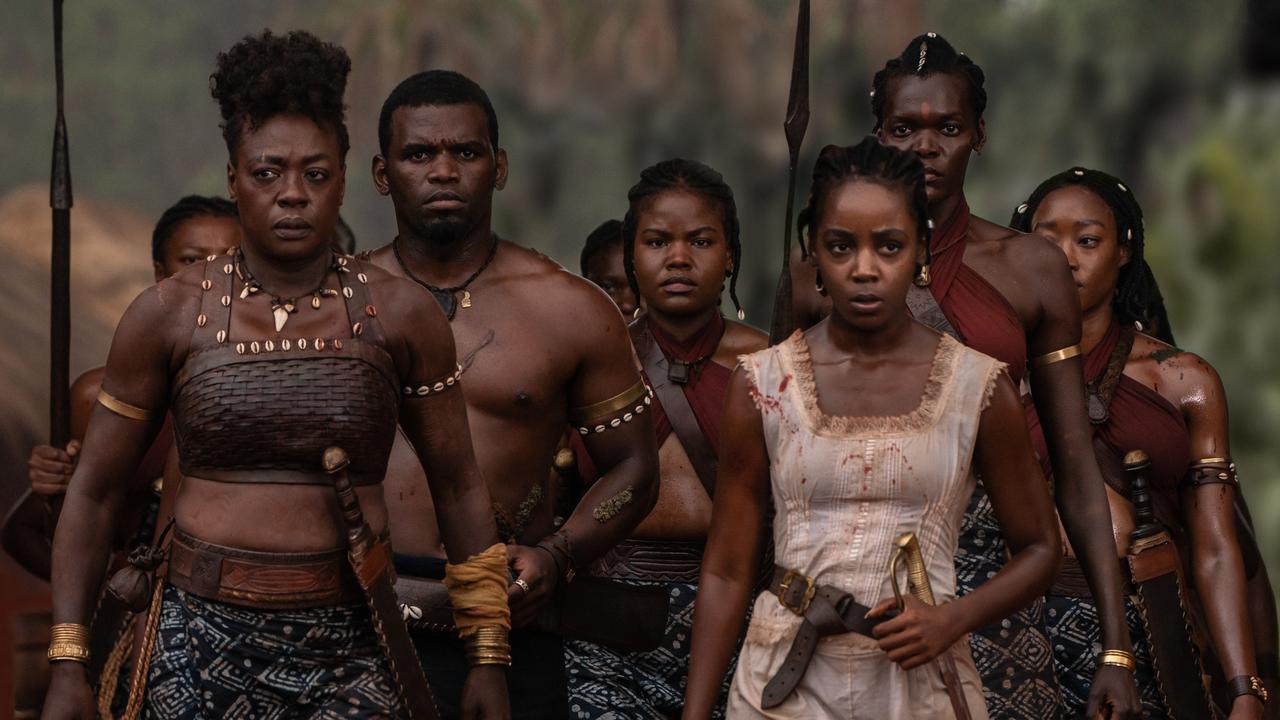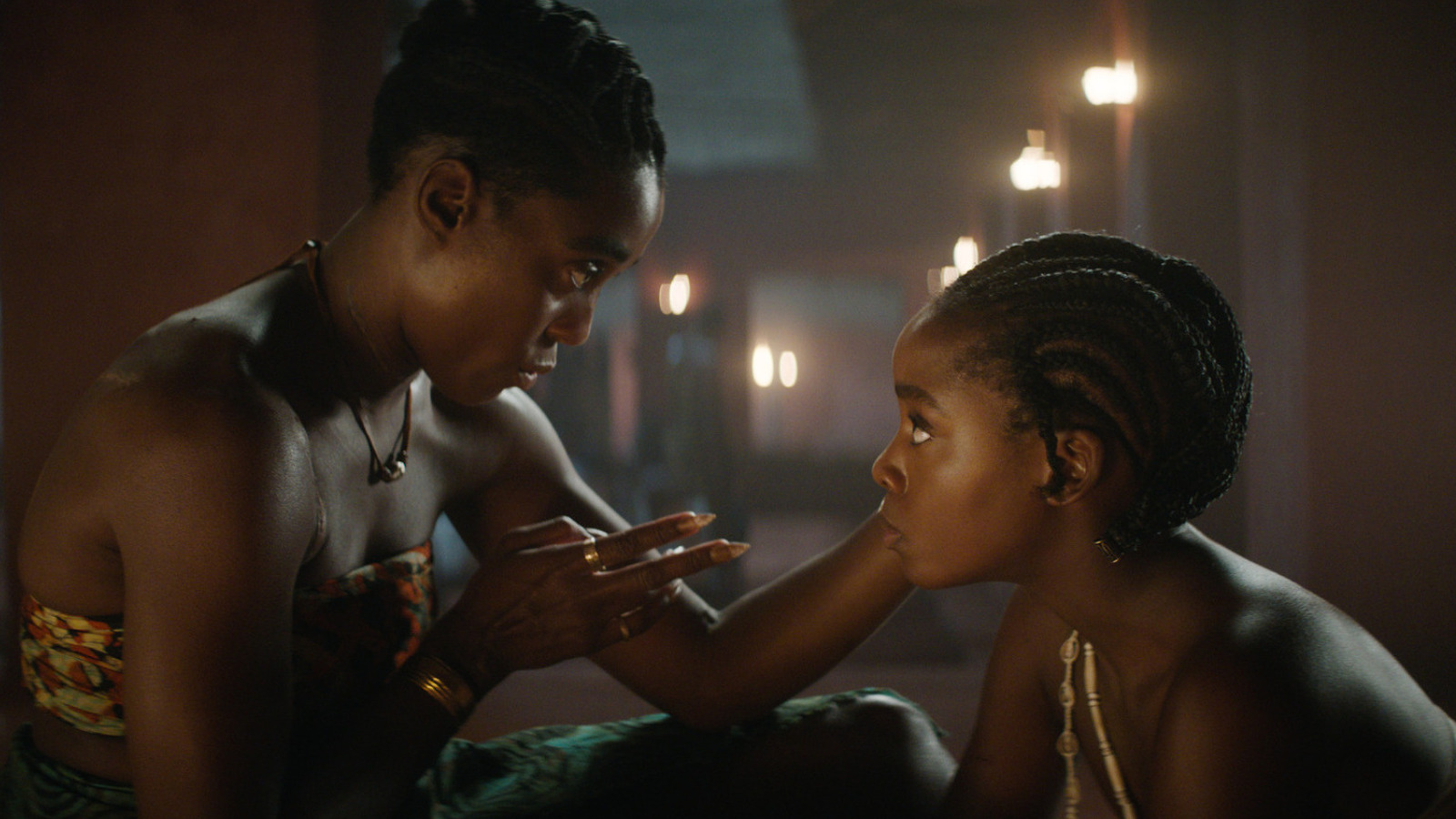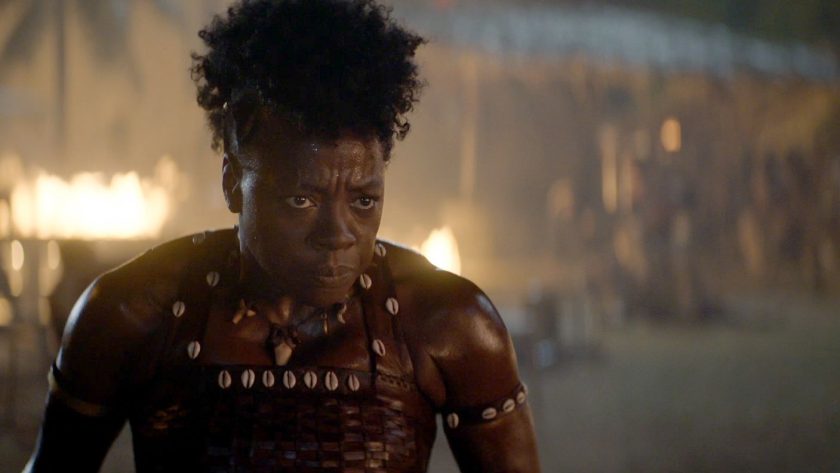Lavanya Nayar reviews Gina Prince-Bythewood’s anticolonial historical epic The Woman King, starring Viola Davis, Thuso Mbedu and Lashana Lynch.
Brought to life by the same impetus to challenge white supremacy in Hollywood that drove the huge commercial success of Black Panther, The Woman King, directed by Gina Prince-Bythewood, is a milestone in terms of representation of both African history and black women. This sensational action movie allows us to discover one of many stifled narratives of colonised states and (re)discover a female cast bursting with talent, but disappointingly falls short of surpassing the box-office game.

The Woman King takes us back to 19th-century west Africa, where the kingdom of Dahomey (modern Benin) is ferociously protected by an all-female military regiment: the Agojie. The shimmering authentic costumes and terracotta interiors set an opulent context for this historical epic. Yet, the region is plagued by palpitant geopolitical tensions, as the slave trade led by the French and the Portuguese shatters the unity of the African continent and prompts neighbouring dominions to poach each other. The film delves straight into the action and opens with a surprise attack led by General Nanisca (Viola Davis) on an Oyo camp, a nocturnal scene lit just enough to give away the salient musculature of these African Amazons and the vitality of their lethal moves. As they face severe retaliation from a rival empire, the Agojie begin training a new generation of recruits. They are joined by the prodigious Nawi (Thuso Mbedu), who is offered to the troops by her father as a punishment for her indocility. We are thus witnessing the training and customs of the Agojie through the bold gaze of Nawi, which pierces hierarchical norms, colonial feuds, and apathetic facades.
The problem is that digging up an intriguing topic is not enough to make a good movie. After setting us on a journey miles and centuries away, the plot leads us to nothing more than a succession of stereotypical, unremarkable storylines and outcomes – suffice to mention the skin-deep romance between Nawi and Malik, which is almost antithetical to the anticolonial discourse of the film. Moreover, despite some attempts to depict King Ghezo (John Boyega) as an ambivalent, not-so-virtuous leader, the script’s flavourlessness is exacerbated by an inflated Manichaeism which portrays the Dahomeys as good-hearted heroes and the Oyos as mere corrupt barbarians. The paltry fictionalisation and standardising Americanisation of these real events seriously undermine the message of the film. If the purpose was to pay a tribute to Beninese culture and denounce the treacherous impact of colonisation, why smoothen the picture so much to fit the expectations and understanding of a Western audience?
This flat scenario is nevertheless partially salvaged by the depth of the characters and the breadth they give to the actresses embodying them to exhibit their skills. Underneath their thick glistening skin and steely-eyed gazes, these female warriors are full of character, emotions, and trauma. It is therefore a pleasure to watch Lashana Lynch, Sheila Atim and Thuso Mbedu bring into play their extensive palette of expressions inside the tight frame of a close-up and tenderly convey the sisterhood that ties them together. The Oscar-winning Viola Davis’ rendition of Nanisca is even more notable as she undertakes this strenuous role in her late 50s. By revealing her tragedy in a restrained, staggered manner, she invokes and provokes a plethora of feelings that contrast with the otherwise melodramatic syntax of the film.

Kudos for the combat scenes too, which are as grandiose and exciting as the classics Prince-Bythewood drew inspiration from (particularly The Last of the Mohicans, Braveheart, and Gladiator) – especially when you consider the 4-month training the actresses had to complete to achieve such physical feats. The spinning movements of weapons and bodies in these scenes of warfare beautifully echo the recurrent circular patterns of the Agojies’ celebratory dances, symbolic of their integrity and solidarity.
The qualities of The Woman King can therefore be summated in its unprecedented and unparalleled subject matter and cast. What will be remembered of this movie is Prince-Bythewood’s, and her screenwriters Maria Bello’s and Dana Stevens’, enterprise to overturn the dusty status quo of the film industry, rather than the final product. The least we can hope for is that it will serve as a stepping stone for future projects encouraging a more diversified dialogue in contemporary cinema.
The Woman King is currently showing in cinemas. Watch the trailer for the film here:




